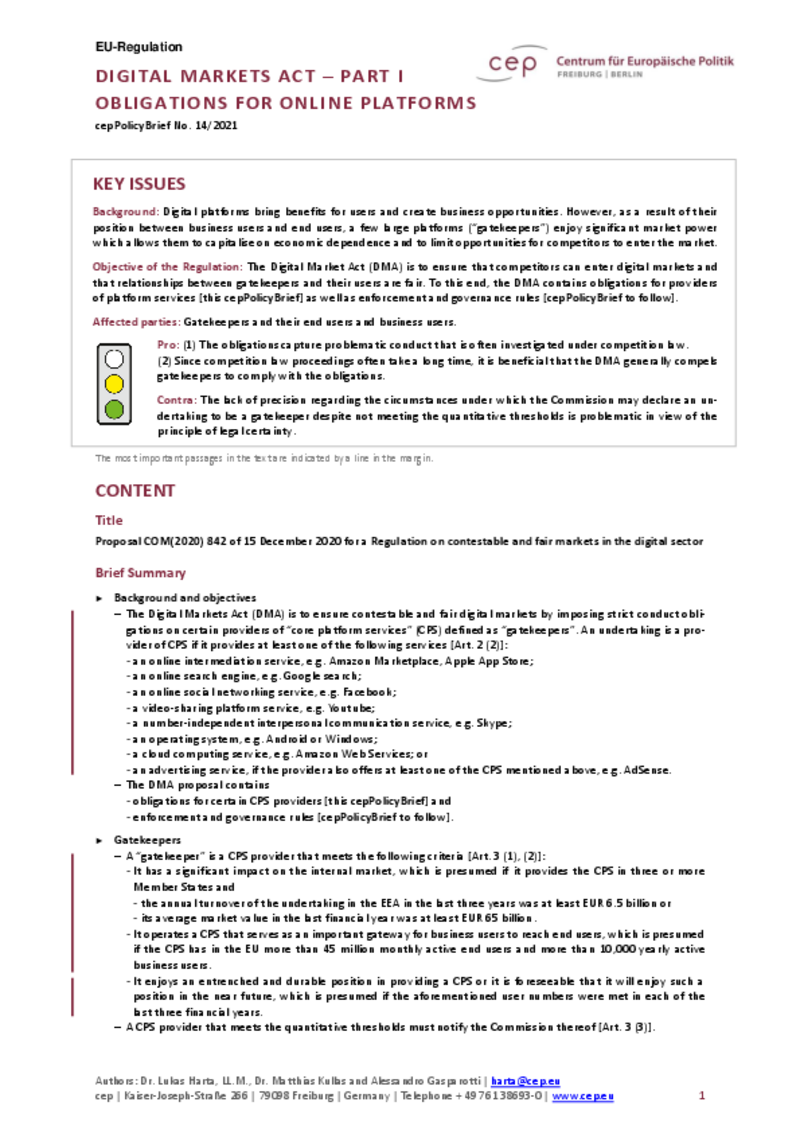
Digital Economy
Digital Markets Act - Part I: Obligations for Online Platforms (cepPolicyBrief COM2020_842)
cepPolicyBrief
The Centrum für Europäische Politik (cep) has examined the Brussels law in a cepPolicyBrief. "Market access for third parties is often massively impeded, the danger of unfair behaviour is great. Therefore, the DMA is appropriate and makes sense," says cep economist Matthias Kullas, who wrote the policy brief with cep lawyer Lukas Harta and cep economist Alessandro Gasparotti.
"Since competition law proceedings usually take a long time, it is advantageous that the DMA generally forces so-called gatekeepers to comply with ex ante obligations," Harta points out. However, he qualifies: "The lack of precision under which circumstances the Commission can declare a company a gatekeeper is problematic with regard to the principle of legal certainty." Kullas calls for "guidelines on how the Commission can make such an assessment."
The big internet companies are already fighting the Commission's plans for new rules in the digital business. Apple, for example, complains that the DMA in its current form endangers the security and data protection of iPhone users. Facebook warns against too strict regulations that threaten to stifle innovation.
However, experts assume that the EU will at least declare Apple, Google, Facebook and Amazon gatekeepers according to the current criteria.
Download PDF
| Digital Markets Act - Part I Obligations for Online Platforms (cepPolicyBrief COM2020_842) (publ. 07.20.2021) | 587 KB | Download | |
 | |||



